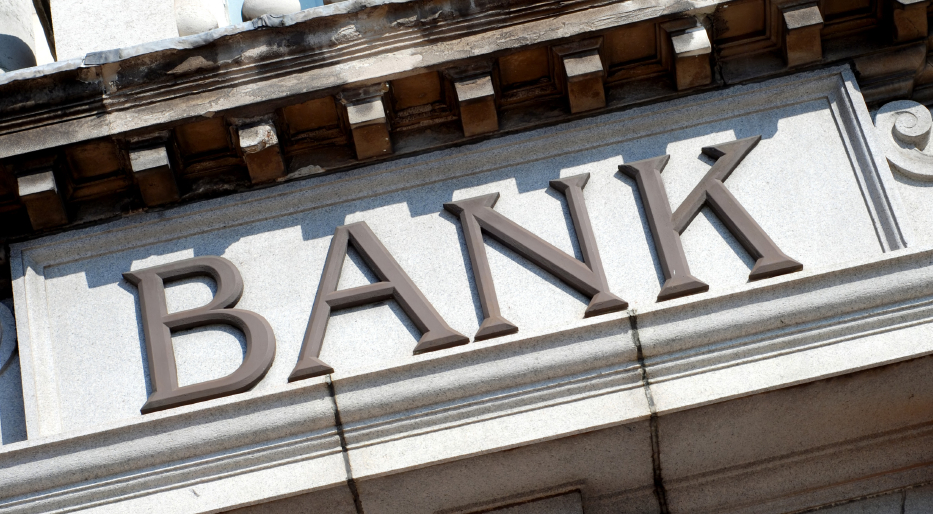Here’s why you should buy bank stocks: In the words of Warren Buffett, “Be fearful when others are greedy and greedy when others are fearful.”
Easier said than done, right?
Criticism against bank stocks is easy to come by. Financials are tied at the hip to the mortgage market — so as long as housing suffers, so will they. There are debt woes, too, since Moody’s recently warned it might downgrade Bank of America (NYSE: BAC), Citigroup (NYSE: C) and Wells Fargo (NYSE: WFC) as the government draws down its support for bank stocks. And, of course, there are fears that “mark to market” accounting tricks have so obfuscated these companies’ books that there could be billions in liabilities we don’t even know about yet.
If that doesn’t spark fear in the hearts of most investors, what would?
But that fear could be a huge buying opportunity. Yes, there is risk in the financial sector, but there is also the potential for long-term rewards. Remember in March 2009 when Citi stock tripled in three weeks? Or BofA stock, which jumped 400% in six months? Very risky calls for folks who bought in at the bottom — and very profitable ones, too.
So, if you are an aggressive investor, stop talking yourself out of banks for a minute and humor me as we cover five reasons bank stocks could be strong buys right now:
#1 Bargain Valuations
Bank stocks are cheap by almost every metric. Shares of major financials are at the lowest prices of 2011, with most picks 10% to 15% away from a new 52-week low and trading near levels seen in the summer of 2009. Also, price-to-earnings ratios and price-to-book ratios are crazy low. Take a forward P/E of around 6.6 for Bank of America, compared with the current year P/E ratio for the S&P 500 of around 16.
Most banks are trading at about 9.4 times earnings, according to FactSet Research. Yes, stocks that set 52-week lows sometimes keep setting them. And yes, valuation metrics like P/E and price/book are best compared within the sector to avoid an apples-to-oranges comparison. But that doesn’t mean you should just dismiss such rock-bottom valuations out of hand. Read: 8 Super-Cheap Information Technology Stocks.
#2 Loan Loss Reserves Recede
Lots of folks like to point out that revenue for banks has been going nowhere, and that most of the strides made on the earnings front has been from the release of so-called “loan loss reserves.” These rainy-day funds were set aside to deal with subprime mortgages and other bad debt — but now that less of that cash is needed to offset losses, it is being returned to the bottom line.
Critics call this an accounting fiction that means profits aren’t growing at all, but that doesn’t tell the whole story. While lending hasn’t picked up dramatically yet, the draw down of reserves is a very encouraging first step. If banks were standing pat, then you could assume things haven’t improved. That’s not the case.
#3 Buffett is Buying Big-Time
I started with a Buffett quote because, like many other investors, I place a lot of weight on what the Oracle of Omaha thinks. And he’s buying banks. Consider that in Berkshire Hathaway’s March 31 holdings report, Buffett’s position in Wells Fargo grew yet again, to about 359 million shares from 342 million shares the previous quarter. And Berkshire owns 5.7 million shares of Wesco Financial Corp. (NYSE: WSC) and is trying to acquire the rest of the company. That’s in addition to huge stakes in financial stocks American Express Co.
(NYSE: AXP) and Bank of New York Mellon Corp. (NYSE: BK), and preferred shares in Goldman Sachs (NYSE: GS).
Yes, other managers of so-called “smart money” are on the other side, with hedge fund investors like John Paulson and David Tepper slowly moving out of banking stocks. But Buffett isn’t known for his short-term sensibilities; he is loaded in banks for the long term, and that could be a bullish sign for the sector despite some immediate challenges. Read: Should You Follow Buffett Into MasterCard.
#4 Will Regulation Be That Bad?
There are legitimate concerns that FinReg oversight will cut deeply into revenue, from proprietary trading profits to overdraft fees. The new regulations are set to go into effect on July 21 — or are they? Sen. Jon Tester, a Democrat from Montana, has proposed delaying some rules by 15 months. But even if this reprieve never comes, it’s important to remember that banks aren’t going to be surprised by this. In fact, the sell-off in shares should tell you that the bad news has already been priced in. Yes, it is uncertain just how big of a bite regulations will take out of already sluggish revenue streams at major banks. And yes, Wall Street hates uncertainty. But sure things are rarely profitable investments. A calculated risk by buying bank stocks now could pay off if the impact of regulations is eased or not as severe as some have feared.
#5 Dividends Healing – Slowly
The Federal Reserve signed off on bigger dividend payments from the big financial stocks early in 2011, and now major banks are offering very respectable income potential. Take JPMorgan Chase (NYSE: JPM), which hiked its dividend from a nickel to 25 cents each quarter. That’s a yield of about 2.4% at current valuations. You can bet that banks are eager for another round of dividend increases, too, not just to entice income-oriented investors, but also to prove that their new payouts are secure and growing. Read: 3 Dividend Stocks Smoking the S&P 500.
As of this writing, Jeff Reeves owned a long position in Bank of America stock. Follow him on Twitter via @JeffReevesIP and become a fan of InvestorPlace on Facebook.

